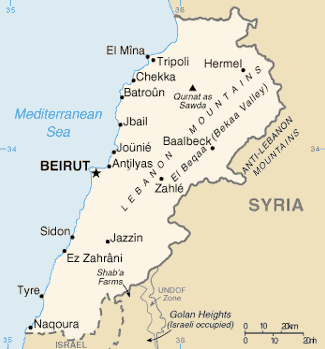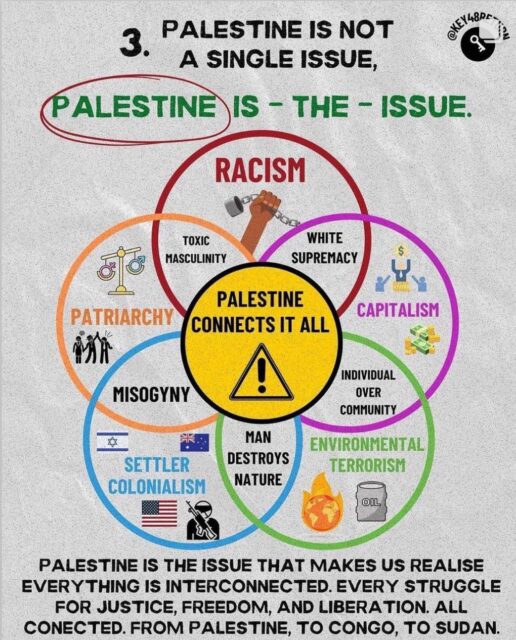TimeGhost History
Published 6 Apr 2025By 1948, Britain’s conflicting promises in Palestine have created a powder keg ready to explode. Contradictory pledges made to Arabs and Zionists during WWI set the stage for rising tensions, violent uprisings, and ultimately civil war. As Britain prepares to withdraw and the UN votes for partition, violence escalates, and the hope for a peaceful, free Palestine shatters into chaos. How did the broken promises lead to such tragedy?
(more…)
April 8, 2025
The Broken Promise of Free Palestine – W2W 19 – 1948 Q1
December 14, 2024
November 7, 2024
Forgotten War Ep4 – Rise of the Chindits
HardThrasher
Published 4 Nov 2024Please consider donations of any size to the Burma Star Memorial Fund who aim to ensure remembrance of those who fought with, in and against 14th Army 1941–1945 — https://burmastarmemorial.org/
(more…)
October 22, 2024
QotD: Antisemitism
The right and the left take turns deciding who’s going to be anti-semitic this century. For some time now the hard left in the West has led the charge against the Jews — or, as the sleight-of-hand term has it, the Zionists. The adolescent spirits of the left love nothing more than a revolution, a story of a scrappy underdog rising up against a colonizing power, and the Palestinians, with their romantically-masked fighters and thrilling weapon-brandishing, fit the bill. Plus, there’s something so deliciously naughty and transgressive about calling Jews the new Nazis — if it feels that good, it must be right.
Doesn’t matter that one side is a liberal democracy that grants rights to women and non-Jews, and the other side has thugs and assassins for rulers and sends its kids to summer camps where they learn the joys of good ol’ fashioned Jew-killin’; doesn’t matter at all. According to the script of the hard left, Israel was created when some Europeans (hisssss) invaded the sovereign nation of Palestine, even though we all know the Jewish homeland is somewhere outside of Passaic. Then for no reason Israel invaded the West Bank and Gaza — which for some reason had not been set up as New Palestine by the Egyptians and the Jordanians, but never mind — and made everyone stand in line and get frisked. Those who joined the line in ’67 are just getting through now. Evil Zionists.
James Lileks, “The most important story in the world last Sunday”, Screedblog, 2005-08-11.
October 7, 2024
A grim anniversary
In the National Post, Barbara Kay notes the anniversary of the Hamas attacks along the Gaza-Israeli border that killed many Israeli civilians and led to the still-ongoing captivity for hundreds more:
One year on, Jews in the West have had time to process the primary shock of Hamas’s pogrom in southern Israel and the secondary shock of hateful blowback against Israel and Jews worldwide. We learned in a span of hours that where lethal antisemitism is concerned, “never again” was for us a mere objective, not a guarantee against those consumed by a mission of “again and again and again”.
But should we have been so surprised? Gaza was riddled with tunnels, their sole purpose to prepare for a war of extermination against Jews. The West’s intellectual “tunnels” have been operating in plain sight for many years. Under the aegis of “Israel Apartheid Week” and the Boycott, Divestment, Sanctions (BDS) movement, vicious anti-Zionism has been a campus fixture since 2001, when the World Conference against Racism in Durban, South Africa erupted into a “festival of hate” against Jews. After decades of aggressive Israel-bashing, Palestinians have been elevated throughout western educational systems to the summit of intersectional victimhood. Those indoctrinated in this hierarchy over the last 25 years consider it a duty and a virtue to demonize Zionism as an original historical sin. October 7 popped the cork on that long-seething volcano.
Throughout the past year, we’ve seen hostage posters vandalized, Jewish schoolchildren bullied, Jewish-owned businesses attacked, Jewish neighbourhoods tormented, Jewish institutions burned and shot at. Downtowns are routinely plagued by foul-mouthed protesters shrieking mantras that call for Israel’s elimination. University campuses have tolerated long-term encampments, Judenrein except for Jews who earn their laissez-passer with a denunciation of Israel.
It’s getting worse. On Saturday in Toronto, a demonstration featured Hezbollah flags, banners extolling violence against Israel and portraits of the (recently eliminated) Hezbollah leader and arch-terrorist Hassan Nasrallah. Last Sunday in Montreal, a band of black-garbed protesters attacked Concordia University and smashed several downtown store windows. During a foot chase, one even threw Molotov cocktails in the direction of police, an ominous escalation.
More ominous in my opinion: Post-October 7, we saw the emergence at rallies and on western social media of the image of a Jewish star being dumped into a trash can accompanied by the words “Keep the world clean” — for years a meme favoured by Hamas, inspired by the Nazis.
The Nazis used the image and words in their propaganda to normalize the idea that Jews, like vermin, were a hygiene threat requiring drastic action to preserve the nation’s health. That such messages are tolerated in the public forum points to a growing acceptance of outright eradicationist antisemitism as a “respectable” opinion to hold, even among supposedly enlightened people in fields such as mental health, as evidenced by anti-Zionist blacklists targeting Jewish members of the profession.
October 3, 2024
Middle East situation – “There are really two international delusions we are seeing in play”
CDR Salamander on the situation in the Middle East as we come up on the one-year anniversary of the Hamas terrorist attacks on Israeli civilians on the border between Israel and Gaza:
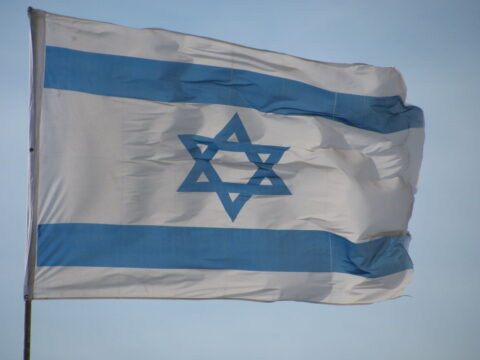
“Israeli flag, Tel Aviv, Star of David” by Tim Pearce, Los Gatos is licensed under CC BY 2.0 .
Less than a week since the invasion of Israel from Gaza and the resulting pogrom that witnessed the largest one day murder, rape, kidnapping and tortures of Jews since World War Two — it is clear that Israel has decided that it was finally time to reset and repair the damage from decades of bad international theory and delusion.
There are really two international delusions we are seeing in play, one Israel has more control over, one has yet to be fully revealed to be the folly it is.
You can see the threads heading back decades earlier, but the first delusion hit its peak during the Clinton Administration in the 1990s, the withdrawal from the Southern Lebanon security zone in 2000, and finished its summit with Israel’s withdrawal from Gaza in 2005.
The delusion was that The Smartest People in the Room™ in DC, New York, Brussels, and Tel Aviv could, if they talked enough, wished enough, and said nice things to each other enough, would find a way to get the various Palestinian. Hope, wishes, and a mistaken trust in international organizations convinced Israel to give peace a chance.
Peace had a chance, and it culminated on October 7th, 2023.
Now, it appears, Israel will take the world as it is, not as it and others wished it to be. The key part of “this world” that some schools of international security affairs for decades have refused to recognize is the common, evil thread connecting them all: The Islamic Republic of Iran.
Gaza
Hamas was always a proxy for Iran. It could not have been able to be the threat it was without two things: 1) Iran; 2) UN. There can be no returning to the world of October 6th, 2023.
Whatever status Gaza winds up having in the future, it will not be like the past. While there remains much hard work to be done in Gaza, the hardest military part is done. It will be pacified thoroughly, and then the really hard part — what will happen to the population and territory of Gaza — will have to be worked out.
Egypt wants nothing to do with it. The Arab nations have already let it be known they don’t want that radicalized population, and Israel cannot let another Hamas like governance take over that strip of land that points in to Israel like a dagger.
It appears that Israel is following a variation of my COA-A I posted four days after last year’s attacks. The bitter fruit of a half-century of bad theory will have to be fixed, somehow.
Lebanon
From its birth as a Shia militia boosted by Iran, Hezbollah has, even more than Hamas, been a proxy for Iran. Only vaguely connected to the Palestinian cause, it has simply become an advanced military force for Iran’s Islamic Revolutionary Guard Corps.
For a year, well over 60,000 Israeli citizens have been internally displaced from their homes in Northern Israel due to unending rocket attack from Hezbollah in Southern Lebanon. As they rightfully focused on the war in Gaza, (as President Lincoln advised, “One war at a time“), Israel took the blows with minimal response until the last few weeks.
The formerly Christian led government of Lebanon cannot police their own nation, and have not been able to for decades, and the UN is more of a problem than a solution, Israel will have to take steps to secure her own safety.
Like the Gaza situation, this will create problems down the road because the hostile population is not going anywhere. That is an issue for later. For now, the rockets must stop.
September 28, 2024
Lebanon is no longer a nation … it’s a parasitized husk operated by Iran’s proxies
In UnHerd, Tom McTague explains why there can be no “settlement” of the South Lebanon problem, because Lebanon ceased functioning as an independent state and is now largely controlled by Hezbollah, which means it’s indirectly controlled by Iran:
[…] A similar assessment was made about Lebanon, a country without a functioning state or economy and at the mercy of Iran’s colonial army, Hezbollah. This, also, was a situation that was thought to be containable — even as Iran exploited the anarchic chaos of Iraq and Syria to supply its proxy with enough weapons to devastate Israel.
The central conceit of the Abraham Accords was that, irrespective of Hamas, Hezbollah and the occupation of the West Bank, once the Israel-Saudi axis was formed, Iran could be pushed back and contained without direct American involvement. But, then, the depth of Hamas’s murderous brutality on 7 October shattered that assumption, leaving not only a traumatised and vulnerable Israel, but also a traumatised and vulnerable Western order forced to confront the stark realities of the Middle East.
Today, Lebanon is a dead state, eaten alive by Hezbollah’s parasitic power. The scale of the catastrophe in the country is hard to comprehend, much of it caused by the disruptive nature of Syria’s civil war. Since its neighbour’s descent into anarchic hell, some 1.5 million Syrians have sought refuge in Lebanon — a tiny country with a population of just 5 million. But, more fundamentally, with Hezbollah fighting to protect Bashar al Assad, the opposing countries — led by Saudi Arabia — began withdrawing funds from Lebanese banks. This sparked a financial crisis that left Lebanon with no money for fuel.
By spring 2020, the country had defaulted on its debts, sending it into a downward spiral which the World Bank in 2021 described as among “the top 10, possibly top three, most severe crises globally since the mid-nineteenth century”. Lebanon’s GDP plummeted by around a third, with poverty doubling from 42% to 82% in two years. At the same time, the country’s capital, Beirut, was hit by an extraordinary explosion at its port, leaving more than 300,000 homeless. By 2023 the IMF described the situation as “very dangerous” and the US was warning that the collapse of the Lebanese state was “a real possibility”.
With Iranian support, however, Hezbollah created a shadow economy almost entirely separate from this wider collapse. It could escape the energy shortages, while creating its own banks, supermarkets and electricity network. Hezbollah isn’t just a terrorist group. It is a state within a state, complete with a far more advanced army. “They may have plunged Lebanon into complete chaos, but they themselves are not chaotic at all,” as Carmit Valensi, from the Institute for National Security Studies at Tel Aviv University, told the Jerusalem Post.
Then came 7 October, after which Hezbollah tied its fate to that of the Palestinians, promising to bombard Israel with rockets until the war in Gaza was brought to a close. We have witnessed the frightening scale of its power over the past year, its bombardment forcing some 100,000 Israelis from their homes in Galilee to the safety of the Israeli heartlands around Tel Aviv. For the first time since modern Israel’s creation, the land where Jews are able to live in their own state has shrunk; the rockets are a daily reminder of the country’s extraordinary vulnerability, threatened on all sides by states who actively want it removed from the map — even from history itself. The pretence that the Palestinian and Lebanese questions could be contained, ignored or bypassed as part of a wider grand strategy to contain Iran has been shattered.
September 26, 2024
Why Three Arab Nations Lost the Six-Day War Against Israel
Real Time History
Published Jun 5, 2024In just six days in 1967 Israel managed to decisively defeat Egypt, Jordan and Syria in the Six Day War. In the process they expand the territory they control with the Golan Heights, Sinai, the West Bank, and Gaza.
(more…)
September 22, 2024
Canada’s latest moral preening on the international stage includes a partial arms embargo against … the USA?
In the National Post, Conrad Black points out that the Canadian government’s tedious and never-ending virtue signalling has reached a new and barely believable low:
It is the usual pious and cowardly humbug that causes Ottawa to announce it is suspending the sales of some non-lethal military equipment to Israel because it has the effrontery to opine that the Israeli Defense forces are insufficiently protective of the lives of civilian Palestinians in Gaza. But it is breathtaking that Canada should include in this practically irrelevant step an embargo on some equipment to the United States that it suspects the Americans might pass on to Israel. This initiative is a trifecta of fatuous error. First, it is clear from thoroughly available evidence that Israel has achieved an unprecedentedly low ratio of civilian to authentic military casualties for modern urban counter-guerrilla warfare. This is especially difficult as the enemy in this case, Hamas, proudly states that civilian casualties are useful to its propaganda campaign (which has brainwashed our foreign policy-makers), and which habitually embeds its terrorist cadres in and near schools, hospitals, and places of worship to incite as much collateral damage on its own population as possible.
Second, it departs completely from any real concept of the nature of war. The invasion of Israel on October 7 and the slaughter of more than a thousand Israeli, mostly civilians, was intended and received as an act of war. Wars are not fought by dropping pamphlets or posturing with trivial gestures. As General Douglas MacArthur famously said during the Korean War, “In war there is no substitute for victory”. This is particularly the case in the current war in Gaza as Hamas has made it clear that it will never accept the right of Israel to exist as a Jewish state. As long as that condition prevails, there can be no peace and Israel’s pledge to exterminate Hamas as a terrorist force enables it accurately to be described in the Wilsonian phrase: “a war to end war”. Canada’s government is engaged in a contemptible assertion of moral relativism between the heroic and democratic state of the long wronged Jewish people and a ragtag of vicious terrorists happy to be the cannon fodder of the principal terrorism-promoting state in the world — the primitive racist totalitarian theocracy of Iran.
Finally in the trifecta, in the bankruptcy of their imagination, our foreign policy makers have taken up the trite evasion of the outgoing Biden administration, that “Israel has a right to defend itself”, but we reserve the right to coach it on how to do that and this effectively limits self-defence to the expulsion of invaders but muffled and insulated retaliation against the invaders after they have been evicted from Israel. This is a formula for perpetual conflict and is a moral and military under-reaction to the enormity of Hamas’ provocation. What our government imagines it is accomplishing with this pallid, torpid, and ludicrous gesture surely escapes the imagination of all interested parties.
It must slightly bemuse the United States government that it is boycotted by Canada, which has benefited from an American guarantee of our security since President Franklin D. Roosevelt, speaking at Queen’s University in Kingston in 1938, said that the United States would not “stand idly by” if Canada were invaded by any power from another continent.
September 21, 2024
“This might be the greatest asymmetrical attack in human history”
Terrorist organizations in the Middle East always have to be aware of the risk of coming to the attention of Israel accidentally, and they’ve suffered losses whenever their operations have been prematurely exposed. The attack on Hezbollah’s communications infrastructure is, as Phil A. McBride says in The Line, “something genuinely new in warfare”:

The attack on Hezbollah’s communications through exploding pagers, radios, and other electronic devices triggered a cascade of instant memes.
Detonating the pagers and other devices would have been a relatively easy thing to do (to the extent that any of this was easy!), since it’s obvious that Israel had already penetrated the pager network, and Hezbollah’s communications generally, before the devices were even deployed. Once Israel was confident that they’d put all the devices into the right hands, they simply sent a message — remember, these devices are all intended to receive telecommunications — that somehow triggered the explosions we saw. I don’t know if the explosives did all the damage, or if the batteries were somehow overloaded as well. What is clear is that the explosions were enough to kill, injure and maim people who were directly holding the devices, but not much more. Videos posted online show people suddenly dropping to the ground in agony after their device explodes in their hands, pockets or backpacks, but people in their immediate vicinity are unharmed.
Again, none of this is easy, but if one is looking to remotely detonate a bomb, it helps when the bomb it intended to literally receive incoming communications.
[…]
That covers the pagers and two-way radios, but what about the other various items that exploded? While almost everything electronic you can buy these days has internet/wireless capability, Hezbollah went through a lot of trouble to be as disconnected from the internet as possible. I can only assume they wouldn’t have connected a device meant to read the fingerprints of terrorists trying to enter a safe house to the internet, where a Mossad hack is a constant threat. This means that any other device that exploded not only had explosive charges installed, but also a radio capable of receiving a remote detonation command. The most efficient approach would have been to tune those radios to the same frequencies used by Hezbollah’s two-way radios to minimize the infrastructure needed to pull off what was already an insanely complex operation, but we will need more information to even begin to understand that part of Israel’s plan.
And let’s talk about the plan. The level of sophistication for such an operation cannot be understated. Everything that we’ve seen over the last few days indicates a complete and total breakdown of Hezbollah’s internal security. Israel managed to intercept and infiltrate both their primary and backup communications networks before they were even deployed, as well as a swath of other electronic equipment, and turn them into bombs.
It has been said that communication is the most important component of any military system, but I don’t think anyone had ever thought of actually weaponizing the opposition’s communications infrastructure itself before now. This is something genuinely new in warfare.
September 4, 2024
British Foreign Secretary David Lammy indulges himself with a Trudeau-esque bit of geopolitical posturing
In Spiked, Brendan O’Neill outlines the British government’s odd choice of timing to announce suspension of (some) arms shipments to Israel:
Bereft of vision, the modern politician is obsessed with “optics”. Which makes foreign secretary David Lammy’s announcement this week that the UK will be suspending some arms exports to Israel all the more surreal. The optics of withholding weapons from the Jewish State the day after we discovered that its enemy is so ruthless it will happily murder young Jews in cold blood are atrocious. Did not one functionary in the Foreign Office think to raise his or her hand and say: “Sir, should we at least wait until the bodies of those six Israeli hostages are cold before we shame and punish the nation they came from?”
This goes way beyond optics, of course. It is more than a failure of spin. It is a failure – a colossal, unforgivable one – of morality. As the bodies of the six slain Jews found in one of Hamas’s hellish lairs in Rafah were being transported back to a grief-stricken Israel, our government took action not against the Islamist extremists who carried out this unutterable atrocity, but against the nation that suffered it. Mere hours after the discovery of an act of fascistic savagery, our government handed a propaganda victory to the fascists by dragging Israel’s name through the mud. What were they thinking? Shameful doesn’t cover it.
Mr Lammy has said around 10 per cent of arms sales to Israel will be suspended. Thirty out of 350 arms-exports licences will be cancelled, primarily affecting parts for fighter jets, helicopters and drones. The reason for this smug, haughty smackdown of the Jewish State? Because there’s a “clear risk”, said Lammy, that such equipment will be used to “commit or facilitate a serious violation of international humanitarian law”. Big talk from a politician who noisily supported the West’s imperial bombardment of Iraq that led to the deaths of hundreds of thousands of civilians and the widescale torture and rape of prisoners.
Many are damning Lammy’s partial embargo as gesture politics. “What is the point?”, headlines wonder. Denying Israel a few parts for planes won’t make much difference, some moan. For the frothing Israelophobes of the iffy left, nothing less than a complete arms embargo will do. They want not one gun to go to crazy Israel. If only there was a word to describe people who agitate morning, noon and night for the disarming of a Jewish nation that recently suffered the worst act of anti-Semitic violence since the Holocaust.
The obsession with the partial nature of Lammy’s reprimanding of Israel misses the point. What the Foreign Office has just done is huge – and profoundly troubling. Sure, it won’t make much of a dent in Israel’s ability to fight Hamas, but it will cast aspersions on Israel’s fight against Hamas. It won’t militarily weaken Israel’s war on the pogromists that slaughtered more than a thousand of its people on 7 October, but it might morally weaken that war with its sly implication that there’s a criminal element to this crusade against Hamas’s army of anti-Semites. The partial arms embargo is indicative of something far more unsettling: a solidarity embargo as Britain slowly but surely turns its back on the Jewish nation.
August 17, 2024
“The notion of a pre-existing Palestinian state is a modern fabrication that ignores the region’s actual history”
Debunking some of the common talking points about the Arab-Israeli conflicts down to the present day:
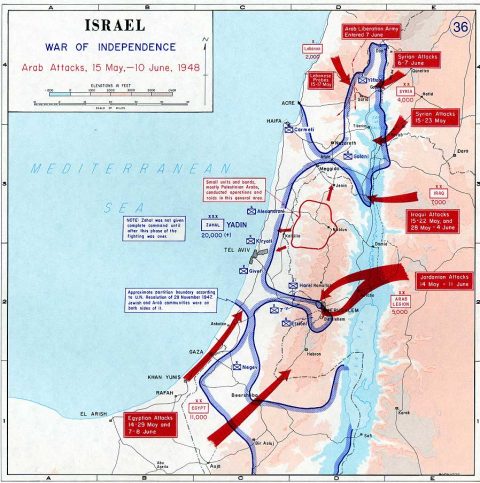
Arab attacks in May and June 1948.
United States Military Academy Atlas, Link.
Before Israel declared independence in 1948, the region now known as Israel, the West Bank and the Gaza Strip was part of the British Mandate for Palestine, which was established by the League of Nations after the fall of the Ottoman Empire in the First World War.
Under Ottoman rule, the area was divided into various administrative districts, with no distinct political entity known as “Palestine”. The concept of a Palestinian national identity emerged in the 20th century, largely in response to the Zionist movement and increased Jewish immigration in the area.
However, there was never a Palestinian state, flag or anthem. The notion of a pre-existing Palestinian state is a modern fabrication that ignores the region’s actual history.
The modern State of Israel’s legitimacy is rooted in international law and global recognition. On Nov. 29, 1947, the United Nations General Assembly passed Resolution 181, known as the “Partition Plan”, proposing two states — one Jewish and one Arab.
The Jewish community accepted the plan, demonstrating a willingness to compromise for peace. However, the Arab states rejected it, refusing to recognize any Jewish state, and instead launched a military assault on Israel following its declaration of independence on May 14, 1948.
Another pervasive myth is the “Nakba” or “catastrophe”, narrative, which claims that Palestinians were forcibly expelled by Israel in 1948. This version omits the critical context that it was the Arab nations that invaded Israel, causing many Arabs to be expelled or flee their homes.
Rather than absorbing the displaced population, the surrounding Arab countries kept them in refugee camps, using them as pawns to pressure Israel. Organizations like UNRWA perpetuated this situation, keeping Palestinians in limbo rather than encouraging their integration into their host countries. This contrasts sharply with how other refugee populations have been handled, where integration and resettlement are the norm.
The land referred to as “Palestine” has always been inherently Jewish. The Jewish people have maintained a continuous presence there for thousands of years, long before Islam or the Arab conquests.
July 1, 2024
Welcome to the “Omnicause” (aka “the Fatberg of Activism”)
Helen Dale first encountered the Omnicause as a university student council member:
For my sins — in 1991 — I spent a year on the University of Queensland Student Union Council. Yes, I was elected, which means I was a volunteer. It ranks up there among the more pointless activities I’ve undertaken. I was 19, that’s my excuse.
Because I’m conscientious, I took it seriously. I turned up to the monthly meetings. I researched the motions to be debated and voted on in advance. I tried to say not-stupid-things when I thought it was worth making a comment. One side benefit: I learnt meeting procedure.
I also had my first encounter with the Omnicause.
Every single student union council meeting had a Palestine motion, sometimes more than one. These were long, detailed, and competently drafted. They routinely dominated more typical student union fare: budgetary allocations to fix the Rec Club roof, say, or complaints about tuition fees. I wondered what the union’s employed secretarial staff thought of typing up and then photocopying pages upon pages of tedious detail about Middle Eastern geopolitics. I remember picking up copies of both minutes and agendas and boggling at the amount of work involved.
There, in miniature — in sleepy meetings in hot rooms where dust particles danced in stray sunbeams as those of us reading law or STEM subjects tried to make sense of it all — was the Omnicause we now see in campuses all over the developed world. My earliest memories of it involve Aboriginal activists describing Australia as a “settler-colonial state” which had been “invaded” — just like Israel. Australia also had no right to exist.
During one meeting, a Palestine-obsessive buttonholed an engineering student known for his commitment to conservation, bending his ear about the Nakba. I misunderstood the exchange, and congratulated my Greens fellow councillor on recruiting a new party member.
“I’m not sure we want her,” he said. “She doesn’t know or care about the environment, just this Israel thing.”
Already, in 1991, the infant Omnicause had learnt to crawl. It was possible to see — albeit dimly — what would happen to genuine conservationists as single-issue lunatics took over their movement and rotted its political party from within. Darren Johnson — whom I’d call a “Green Green” — and his cri de coeur captures the process well:
Terrible haircut I know, but here’s me in the Hull Daily Mail running for the Green Party in 1990. I stood on a platform of male rapists in female prisons, hormone drugs for 10yos and rebranding women as uterus-owners. No, don’t be silly, it was housing, environment & poll tax.
Darren Johnson, recall, was the UK Green Party’s former principal speaker, its first-ever London councillor, twice its London mayoral candidate, and is a former chair of the London Assembly.
The Omnicause: what writer Hadley Freeman calls “the fatberg of activism”. This is a genuine flyer, by the way. I admit to suspecting the work of Mole at the Counter, General Boles, Famous Artist Birdy Rose, or Burnside Not Tosh — so I checked.
The Greens in both Australia and the UK have become a vector for much of the worst nonsense: trans and Gaza and chucking orange paint around an art gallery near you have displaced saving the Fluffy Antechinus1 or improving biodiversity, quite apart from anything else. Trans, in my view, is also part of the Omnicause, albeit a junior partner. Like Palestine, it’s capable of colonising major political movements focussed on something else entirely, as this (justifiably angry) supporter of Scottish independence points out.
1. This animal does not exist, although the Antechinus does.
June 26, 2024
Lord Balfour
Arthur Lord Balfour, Conservative Prime Minister from 1902 to 1905, is perhaps best known for the Balfour Declaration issued during World War 1 that established the formal goal of an independent homeland for the Jews in the Holy Land. Who was he? Barbara Kay’s essay originally published in the Dorchester Review was recently reposted at Woke Watch Canada:
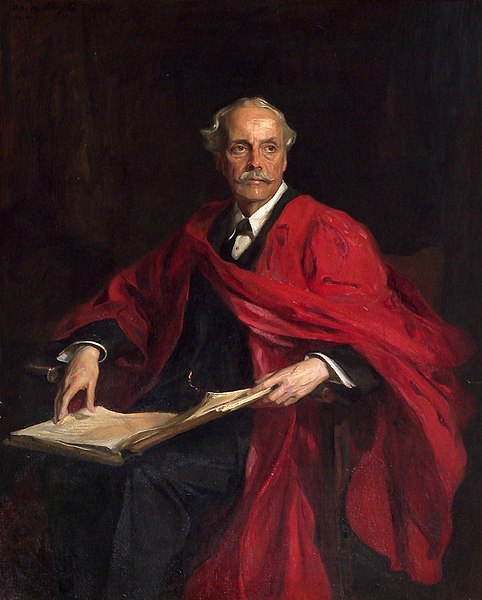
“Arthur James Balfour, 1st Earl of Balfour, KG, OM, PC, Prime Minister and Philosopher” portrait in oil by Philip de László, 1914.
From the Trinity College collection via Wikimedia Commons.
Why was the aristocrat Lord Balfour, the social antithesis of this humble Jew from the Pale of Russia, so taken with Weizmann’s vision that he was willing to expend political capital and exert so much effort to see it realized? Who was Balfour? What was he?
Arthur James Balfour was born at his family seat, Whittingehame, in East Lothian, the “granary of Scotland”. A forebear had made a fortune in India in military materials, so he was financially secure for life, and socially connected at the highest levels.
Having lost his father when he was 7, Balfour was lucky in his mother, a strong-willed and educated woman who, according to Mrs Dugdale, inculcated the idea of duty as “the uncompromising foundation of his character”. He attended Eton and Cambridge, where he was described by a friend as “a man of unusual philosophy and metaphysics”, who could hold his own with the Dons (professors), “some of them men of undoubted genius”. He was devoted to his extended family, and much beloved by his nieces and nephews.
In his essay “Arthur Balfour: a Fatal Charm”1 cultural critic Ferdinand Mount cites “nonchalance” as Balfour’s defining trait. Legendarily indolent, he rarely rose before 11 a.m., claimed never to read newspapers, and disdained the ritual schmoozing of fellow backbenchers expected by his peers in the Members’ Smoking Room. Mount says he was “indifferent to what his colleagues, the public or posterity thought of him or his policies”.
This loftiness — echoed in his unusual physical height — was perceived as admirable or maddening according to the observer and circumstances. Churchill said of him: “He was quite fearless. When they took him to the Front to see the war, he admired the bursting shells blandly through his pince-nez. There was in fact no way of getting to him.”
His self-sufficiency was no act. Sports-mad, he skipped lunch with the Kaiser to watch the Eton and Harrow cricket match, and when in Scotland might play two full rounds of golf a day (his handicap of 10 was better than P. G. Wodehouse and about the same as thriller writer Ian Fleming’s).
Balfour sounds from my description so far as if he was something of a playboy, but that is a very partial portrait. He was also known as “Bloody Balfour” for his readiness to endorse police action and his apparent indifference to their cost.
The Irish loathed him. In 1887 he became personal secretary for Ireland under his uncle, Lord Salisbury, just in time to enforce the Coercion Act against the volatile Irish Land League. Indeed, Balfour’s parliamentary critic William O’Brien saw him as a man who harboured a “lust for slaughter with a eunuchized imagination” who took “a strange pleasure in mere purposeless human suffering, which imparted a delicious excitement to his languid life”.
One hopes this accusation of actual sadism is an exaggeration of Balfour’s indubitable detachment. Yet indifference to human life is certainly not an uncommon charge laid against intellectuals for whom ideas loom larger in their claims to attention than the fate of those beyond their particular tribes.
For balance, we have Barbara Tuchman’s assessment:
Balfour had a capacious and philosophical mind. Words to describe him by contemporaries are often “charm” and “cynicism”. He had a profound and philosophic mind, he was lazy, imperturbable in any fracas, shunned detail, left facts to subordinates, played tennis whenever possible, but pursued his principles of statecraft with every art of politics under the command of a superb intelligence.
Fortunately for his temperament, Balfour’s life circumstances had landed him at the centre of a genuinely intellectual circle. His brothers in-law, for example, were Lord Rayleigh, who became head of the Cambridge Laboratory and won the Nobel Prize for Physics, and Henry Sidgwick, the Cambridge philosopher who with his wife Elaine Balfour founded Newnham College.
Politically, Balfour enjoyed both dramatic success and dramatic failure. He led the Unionist Party longer than anyone before him since Pitt the Younger. And he was a minister longer than anyone else in the 20th century, including Winston Churchill. Balfour was the only Unionist who was invited to join Asquith’s first war cabinet, and continued as foreign secretary after the coup that brought Lloyd George to power.
As Churchill put it: “He passed from one cabinet to the other, from the prime minister who was his champion to the prime minister who had been his most severe critic, like a powerful, graceful cat walking delicately and unsoiled across a rather muddy street”.
One of Balfour’s teachers at Eton described him as “fearless, resolved and negligently great”. On the other hand, Mount tells us, “indecisiveness” was his bane. He would stand paralyzed in the mezzanine of his London home agonizing over which of the matching staircases to descend by. He could love — the great love of his life died after an unreasonably long engagement — but, allegedly too staggered by the loss of his almost-fiancée, he never married.2 He could not be pinned down politically on many issues, a matter of great frustration to his colleagues, and this cost him dearly. As Mount notes, his charm was indisputable, “but more than charm he would not give” and “in the end, the charm is all that remains.”
Balfour fought three general elections as party leader and lost them all. His premiership lasted less than four years and ended in a Liberal landslide in 2006, a great electoral humiliation in making him the only prime minister in the 20th century to lose his own seat. He did not seem greatly to repine at the rejection, though, and it is thanks to the loss that he had time to further his education on the Zionist movement.
1. Mount, Ferdinand, English Voices (2016), pp 358 ff.
2. One suspects that even if May Lyttleton had lived, Balfour would have avoided marrying her on some pretext or other. There is no evidence that Balfour was a closeted homosexual, but he may have been asexual. He enjoyed an “amitié amoureuse” with (married) Mary Elcho for 30 years involving little or nothing in the way of sex, after which she wrote to him, “I’ll give you this much, tho, for although you have only loved me little, yet I must admit you have loved me long”.
May 29, 2024
A visit to failure pier
CDR Salamander has some advice for any US congresscritter with a spine (unfortunately, that probably means none of them):
This old operational planner has one bit of advice to Congress in their role of having oversight of the Executive Branch; subpoena the Decision Brief for the Gaza pier operation.
This was on the lowest of low scale of military operations, Humanitarian Assistance/Disaster Response. There is little to nothing classified about any of this rump of a capability. Call in member of the Joint Staff who were involved in this planning — and I would prefer if you could find a few terminal O5/6 to testify as well. You might actually enjoy some candor.
The Commander’s Intent, the Higher Direction and Guidance, the Planning Assumptions, the Constraints and Restraints, the Critical Vulnerability analysis, etc. It is all there. If not, the Chairman of the Joint Chiefs of Staff and the Secretary of Defense should tell the American people to their face.
This is a larger issue than anything happening in that impossible corner of the globe. Over the weekend, we saw yet more indications of an empire in decline deteriorating from bad to pathetic.
From the time the first load came off the pier, the aid barely made it past 300 meters until it disappeared into Hamasistan.
I’ll go ahead and tap the sign;
[…]
Generally this latest act in this other-end-of-the-Med-from-the-Greeks tragedy that has unfolded in front of everyone. As we saw at the top at Ashkelon Beach, first some ancillary bits floated over to Israel as the Eastern Mediterranean reminded everyone it is at the eastern end of a big sea with weather and waves and stuff.
We then found out that three soldiers were injured in a forklift accident. Just to add insult to injury, as the locals laughed, it appears more of the business end decided to try to make it to Haifa on its own.
[…]
I’m not sure how you scatter Army property all over the Eastern Med without a boot getting dry, but maybe I’m wrong. Gaza is lava, and all.
Empires don’t often die in a blaze of glory, no. More often than not they end in simpering apologies and excuses from poor leaders putting the wrong people in positions they have no place being, and when they fail — there is no accountability.



